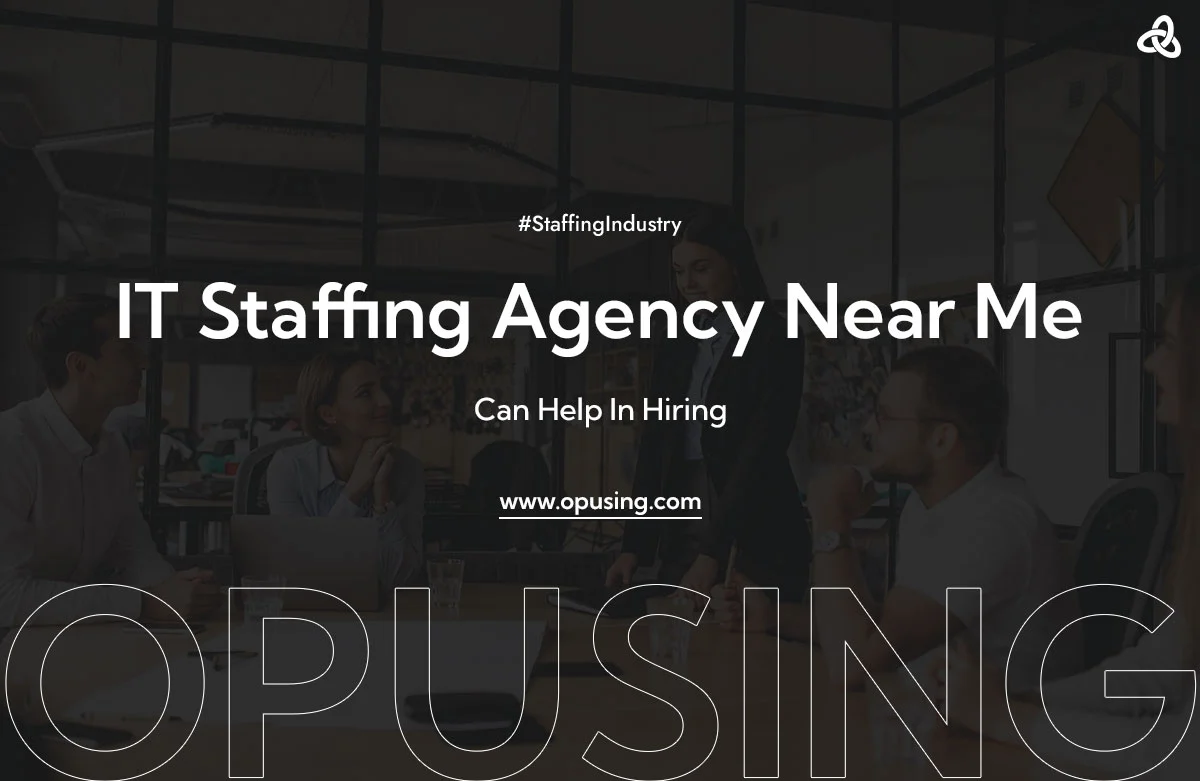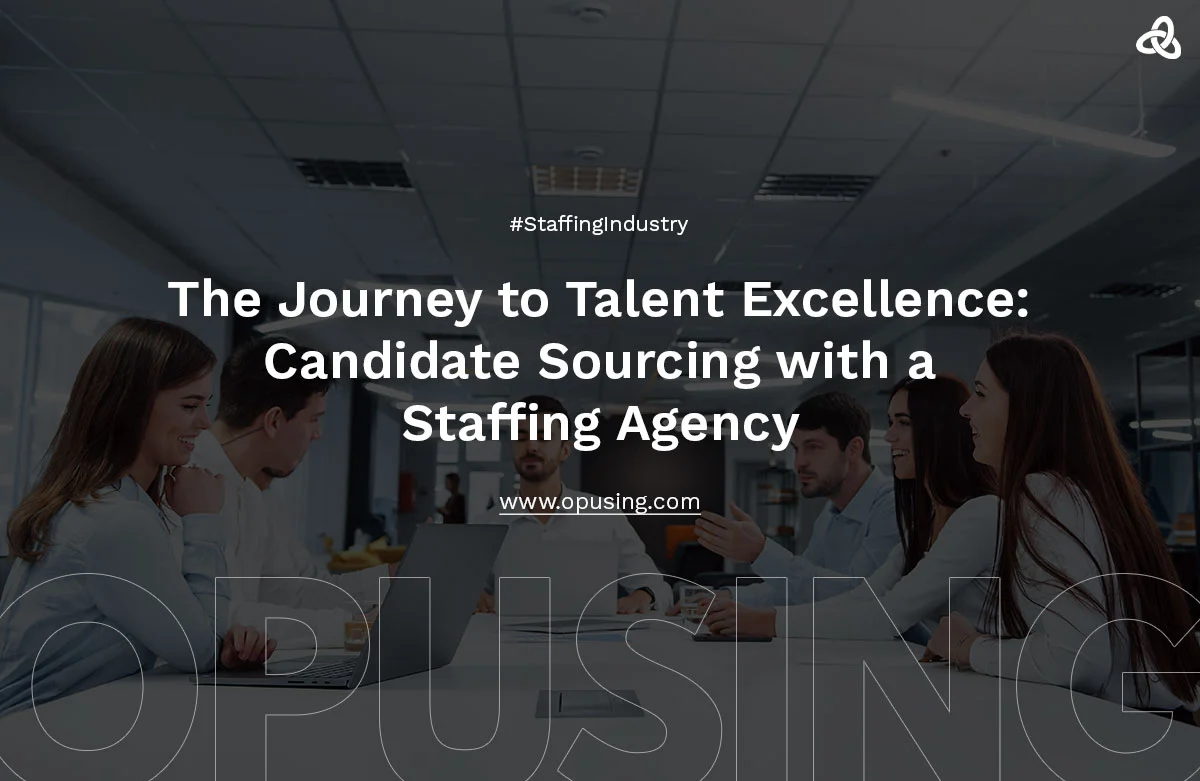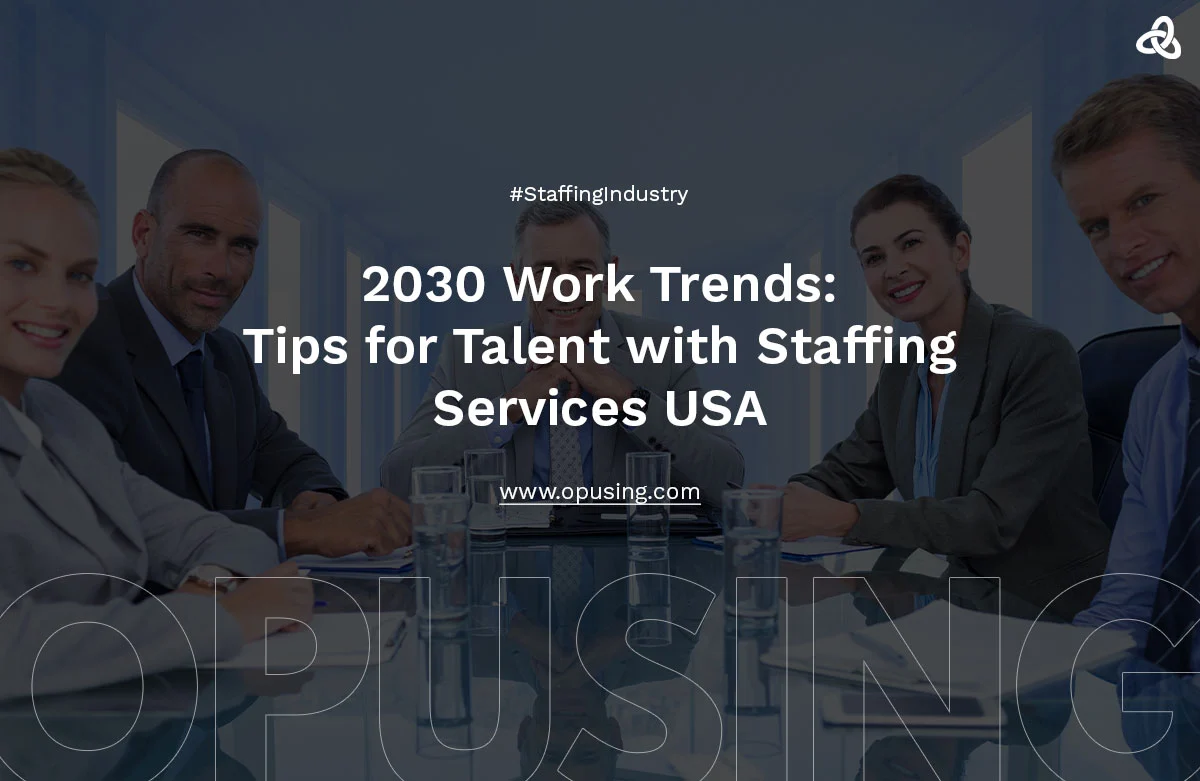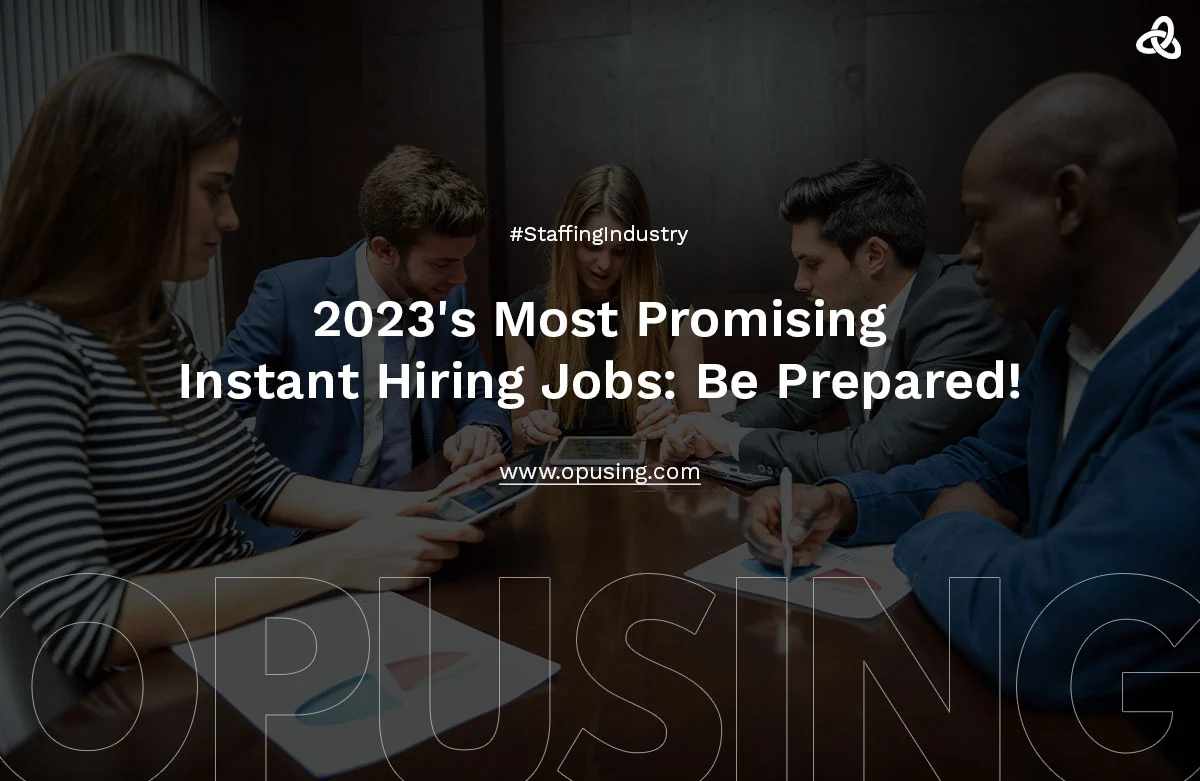IT Staffing Agency Near Me Can Help In Hiring
 Shourya Mehta
Shourya Mehta- Feb 08, 2024

IT staffing agency near me
for support. Read on to learn why partnering with an expert team near you is the key to hiring success even in challenging conditions.staffing firms
specializing in IT recruitment, this complex hiring environment requires adaptability, which Opusing is an expert of. As your clients face uncertainty, how do you continue placing qualified candidates while providing value? Success lies in becoming a trusted advisor and resource. This content piece looks closely at the complicated nature of hiring IT staffing agency near Me during an unstable economy. It provides useful tips and advice for recruiting talented tech workers while also being mindful of budget limitations.The Persistent Demand for Tech Expertise
Despite the economic headwinds, the demand for skilled IT professionals remains unabated. Emerging technologies like cloud computing, artificial intelligence, and cybersecurity are driving a relentless need for qualified individuals who can translate digital possibilities into tangible business outcomes. This presents a golden opportunity for talented IT professionals to leverage their skills and secure lucrative positions in a competitive market.
Heightened Scrutiny and Strategic Hiring
However, the economic uncertainty has also ushered in an era of increased scrutiny in the hiring process. Companies are adopting a more cautious approach, prioritizing strategic talent acquisition over hasty recruitment. This translates to longer interview cycles, stricter skill assessments, and a greater emphasis on identifying candidates who possess not only technical prowess but also cultural fit and adaptability.
Adaptability and Agility: Keys to Success
Technology has been changing constantly and this will carry on. New tech skills like blockchain and quantum computing are becoming more important. Soft skills like teamwork, communication, and problem-solving are also in high demand. Recruiters need to learn about these latest skill needs. They also need resources to find candidates with the right mix of technical abilities and people skills.
What Happens If There’s a Pause in Technological Progress?
In the face of economic turbulence and global uncertainty, a chilling thought arises: what if we were to pause our digital march? While the allure of temporary reprieve may seem enticing, a closer examination reveals a hidden price tag, one with potentially far-reaching consequences.
The Impact:
Competitive Disadvantage: In the fast-paced digital world, stopping progress can be seen as falling behind. Competitors, especially agile ones, will take advantage of any slowdown in innovation. They can gain market share and get further ahead. This can mean losing revenue, customers, and make it hard to catch up later.
Existing Employees Morale: A company that seems stuck technology-wise can have trouble getting and keeping top talent. In the digital age, employees want to use cutting-edge tools and drive real innovation. Stopping digital progress can make it look like the company lacks vision. This can lead to disengaged employees and more people quitting.
Lack of Trust and Confidence: Stopping digital progress can make people think a company is unsure or can't make choices. This can hurt public trust in the company's ability to handle digital challenges. It can also hurt future business investments, consumer spending, and the overall economy.
Employer Branding deterioration: A dynamic digital culture and the chance to work with the latest technology help attract and keep top talent. Companies that stall on digital progress can struggle to get and hold on to skilled workers, especially compared to forward-looking competitors.
What Should Companies Do?
Being careful in uncertain times is understandable, but it should not lead to total inaction. Companies can deal with uncertainty by taking a strategic approach to digital agility. This means focusing on the most critical digital projects that address current issues and set up future growth. By targeting short-term successes that have clear benefits and enable future innovation, companies can show resilience and stay competitive.
Staffing Agency Near Me
” ContactOpusing
for technological workforce solutions and effective IT Staffing SolutionsOur Latest Blogs

7 Best Staffing Agencies Tips to Make Your Job Application Stand Out From the Crowd
We curated seven tips that the best staffing agencies will approve of to help your job application stand out....
Read More
Workforce Solution: Four Advantages of Converting a Temporary Staff to Permanent Employee
Hiring a temporary workforce is the most advantageous workforce solution. However....
Read More
Staffing Firm Edition: 4 Ways To Make Onboarding Process Effective for Remote Employees
Staffing firms will confirm that changing times calls for a process revamp. Now you need to adjust to....
Read More



Leave your thought here